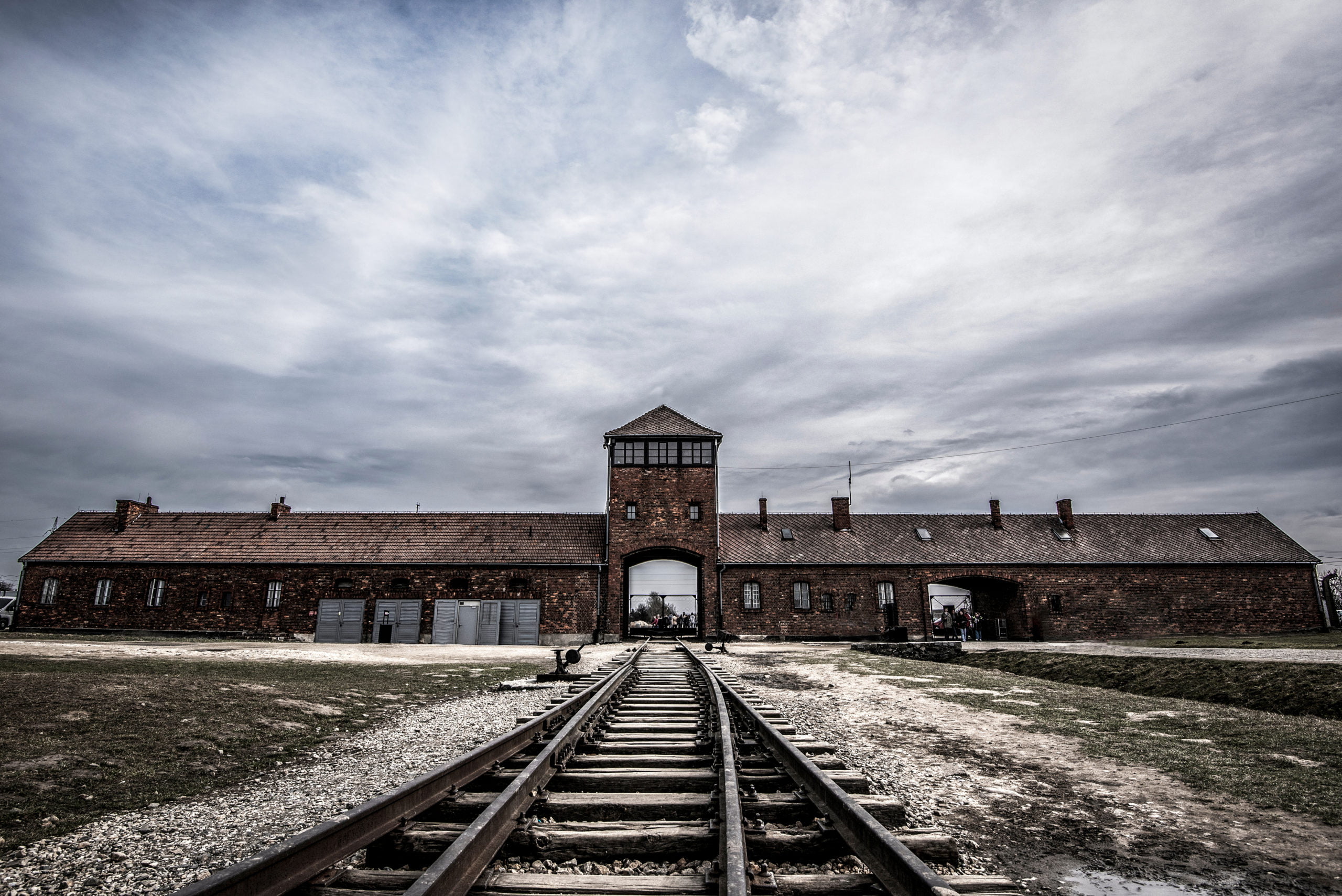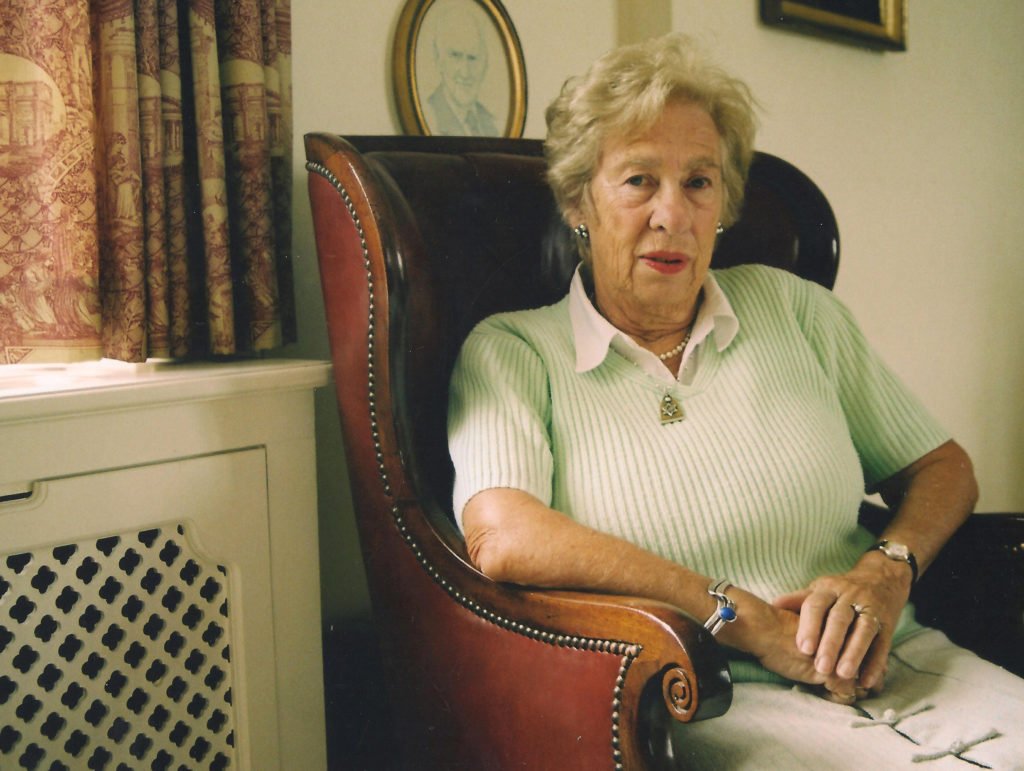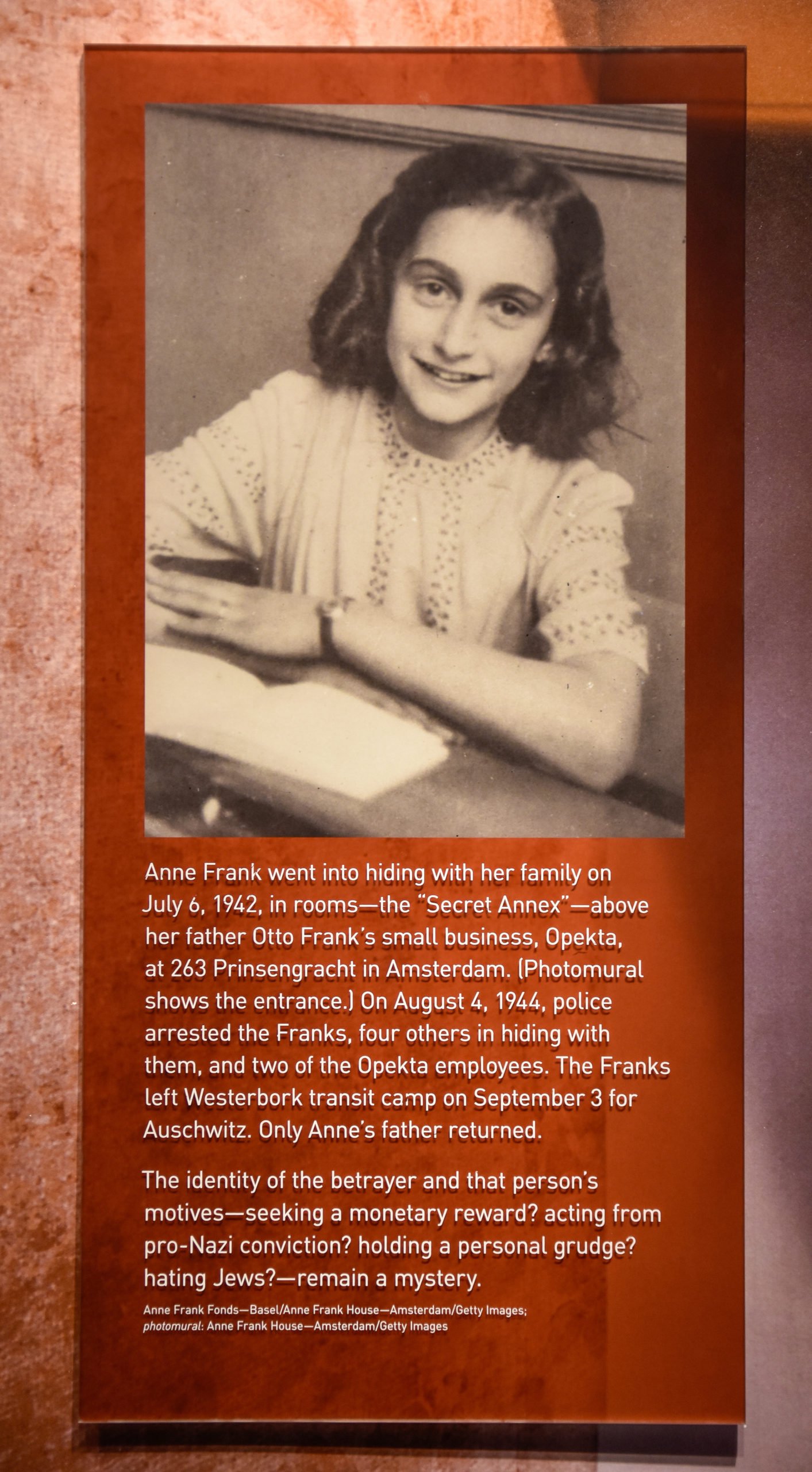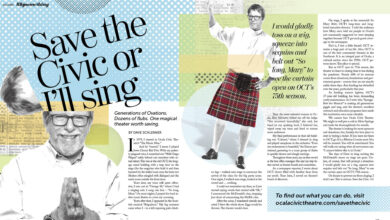By Benjamin Baugh The complexion of one’s life can change in an instant.
The complexion of one’s life can change in an instant.

The anxiety associated with hiding; being forced to abandon one’s previous life, often being stripped of one’s identity in terms of a profession and being denied the opportunity to make a living with an existing skill set; living in fear and uncertainty; remaining circumspect in one’s actions and relationships—all of these were variables that left long-lasting psychological trauma, whose effects resonated a lifetime with survivors of the Holocaust.
This was routine for many of the Jews in Europe, one that saw the decimation and destruction of their population of nine million. By the end of the Holocaust, two-thirds of the European Jewish population was lost as the result of the wrenching event, one whose impact is still felt today. Six million people of the Jewish faith and ethnicity were systematically murdered by the Nazis.
 Chabad of Ocala and The Villages are presenting a program featuring a speaker who experienced the horrors of having lived through one of the most inhumane periods in history. Eva Schloss is an author of three books and a survivor of The Holocaust, having been incarcerated in Auschwitz-Birkenau for eight months. She is also the step-sister of one of the most globally renowned authors of the 20th century, Anne Frank, whose Diary of a Young Girl has impacted generations of readers, since its first publishing in 1947. A Historic Evening with Anne Frank’s Stepsister, Mrs. Eva Schloss, will be held March 26, at the Marion Technical Institute at 6 p.m.
Chabad of Ocala and The Villages are presenting a program featuring a speaker who experienced the horrors of having lived through one of the most inhumane periods in history. Eva Schloss is an author of three books and a survivor of The Holocaust, having been incarcerated in Auschwitz-Birkenau for eight months. She is also the step-sister of one of the most globally renowned authors of the 20th century, Anne Frank, whose Diary of a Young Girl has impacted generations of readers, since its first publishing in 1947. A Historic Evening with Anne Frank’s Stepsister, Mrs. Eva Schloss, will be held March 26, at the Marion Technical Institute at 6 p.m.
“For us, this is very important, especially because there’s so much anti-Semitism lately in our community,” said Rabbi Yosef Hecht, from Chabad of Ocala and The Villages. “It’s also very significant that it’s [been] 75 years since the liberation of Auschwitz. The community is becoming less and less educated about what’s going on. You also have Holocaust deniers coming along, and so, we as a central Jewish community Center, feel that we have an obligation to educate people. The event is open to everyone, not only to Jewish people, but to all faiths and all people.”
However, it’s Schloss’ experiences along with the experiences of her family—her mother, Elfriede; her father, Erich; and her brother, Heinz—that have played a pivotal role in the author’s life, allowing her to tell her story of personal heartbreak and eventual triumph that has impacted audiences globally. Both Erich and Heinz perished during the Holocaust. Schloss’ tomes—“Eva’s Story,” “The Promise,” a book paying tribute to her artistically gifted brother Heinz, and “After Auschwitz”—provide readers with a first-hand look at the adversity and challenges associated with the Shoah, the Hebrew word for the Holocaust, and Schloss’ spirit for living and her connection with her mother, that would lead to Schloss’ eventual triumph.
“The concept that all men are created equal, and that everyone is created in the image of God; everyone has a meaning and purpose,” said Hecht. “That’s what’s really so important.”
The Austrian-born Elfriede Schloss and German-born Frank were neighbors in The Netherlands. They knew each other and played together, so it’s poignant that Schloss’ writing would continue a story that should resonate as loudly today as it did more than 70 years ago, with a far greater impact. Schloss’ mother married Otto Frank, Anne Frank’s father, in 1953.
When Schloss first began writing “Eva’s Story” in 1986, she realized that the human race really hadn’t learned anything from the experiences associated with The Holocaust, that prejudice, discrimination, and hatred were still prevalent in society. The memoir tells in great detail the ordeal that Schloss and her mother went through. “Eva’s Story” was published in 1988.
“People really didn’t talk that much about it [The Holocaust], but this was an opportunity to come out with it,” said Schloss, who’s 90 and lives in the United Kingdom. “It became very popular and I was always asked to talk at different schools, different venues and so the message spread. That was my first book [Eva’s story], and my mother was still alive, and she had experienced quite a few miracles.”
Schloss’ second book, The Promise, was intended for a younger audience.
“I lost my older brother—he was not quite 18—when he was murdered by the Nazis,” said Schloss. “He was a wonderful musician. But in the course of hiding, we were hiding for two years, he couldn’t make any music, and he created some amazing art work, paintings, and a lot of poems.
“Very often my mother said, ‘Anne has become world-renowned and well-known through her diary, and she has become immortal, but what about Heinz? He had been a wonderful young man, possessed so much promise in his life, and his life was cut short.’ And being artistic, he [Heinz] was very much afraid of dying. I think we all are a bit. He asked my father one day, ‘What will happen when we die?’ and my father said, ‘Of course, your body will disintegrate, but if you have children, you will live on in your children.’ And Heinz said, ‘But what if I die before I have any children?’ And this is what happened to him. He died at 17. And my father said, “Whatever you’ve done in your short life, people will know about it, and you will not be forgotten.’”
It was then that Schloss decided to write a book, featuring images of Heinz’s artwork, some of his poetry, leaving a legacy that’s poignant and powerful.
“That’s what I think we would all really like to be, to have lived in this world and to leave something behind to help people create a better life, or an interesting life so people can remember what you’ve achieved,” said Schloss. “Someone has made a postcard book with all the pictures in it. You can tear them out and send them as postcards or you can keep them as well. It’s very beautiful.”
After the second book, Schloss didn’t see herself writing another, but the author would soon be back at work, having been commissioned to write a third, “After Auschwitz.”
“Of course, it’s not only after Auschwitz,” said Schloss. “You just can’t start someone’s life story in the middle of something. It’s a bit of a different version of “Eva’s Story” and much more of how I had to struggle about not being able to share my experience, how I had the hatred, trying to get over that, and that will interest the reader as well. And of course, a play came from it, “And Then They Came for Me: Remembering the World of Anne Frank.” It’s a play about the Frank family and my family.”
The presentation in Ocala will provide a platform for Schloss to share her experiences.
“I will explain what happened, how unprepared we were, but even worse, Hitler didn’t really want to kill the Jews, he just wanted to get rid of them,” said Schloss. “He intended to make Europe his big powerful empire, and he wanted to do it without the Jews. So, at first the Jewish people were able to go to America, Australia, Canada, England, France and other European countries. We came from Vienna, Austria. But at that time, nobody wanted anymore Jews. And then, Hitler realized, people don’t seem to care about them. So, if you were going to kill them, nobody was going to object, lift a finger or anything, and indeed, that is what happened.”
The experiences left Schloss full of acrimony. She was not just bitter with the Germans and Nazis, but with the whole world because The Holocaust could easily have been avoided. She sees some parallels now with what’s transpiring in the world, with the vast number of refugees.
“We make wars in different countries, like Syria and Libya, and then people have no way of living,” said Schloss. “Their house and their property are destroyed. There is no work. There’s disaster, illnesses, and maiming of children. People try to go to a different country to start a new life, and then the world isn’t interested, doesn’t want them, and you know, I try to explain this to people that it has to stop, and that we need to make the world a good place, where you don’t have to move from your own country. We need to find hope for these people. I don’t see why there’s prejudice against people from a different race or a different color or a different religion. It’s very personal. I just don’t understand why this hatred is between people.”
The apathy that still exists after decades is troubling, with many turning away with an all too familiar indifference.
“I think they realize that but don’t seem to care. These people have become very selfish, very self-centered, living in a world and in a community where people should care about each other and that enriches lives,” said Schloss. “I wouldn’t say everybody is bad, there are some wonderful young people growing up now who really care about things … the whole world has problems and we have to solve them and not go against it.”
For TICKETS AND INFORMATION
visit www.AnneFrankOcala.com
or call (352) 330-4466.






